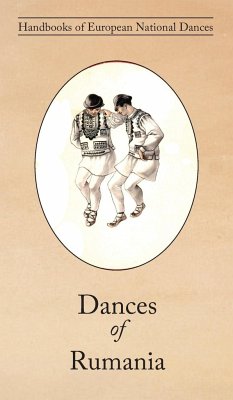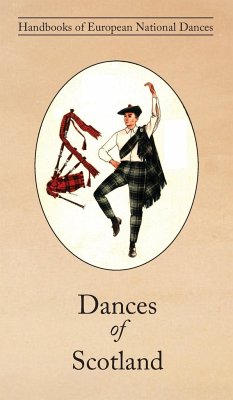The charm of the folk dances of Rumania derives, to a large extent, from many strange and ancient peasant customs, including shades of 'bacchic frenzy', and the still practised initiation ordeals connected with the ritual Calusari dance. Superstition and magic are evidence of the supposed presence of fairies in this amazing dancing rite; and there seems to have been a curious custom in which a group of young men sold themselves to the devil and started out from their native village, literally dancing their way through the country. The four typical dances chosen for presentation in detail, complete with music and step-notation, are the nation-wide Hora, the gay Invartita, the energetic and popular Sarba, and the dignified Banul Maracine. Their traditional tunes appear here in admirable piano arrangements by Arnold Foster, and four delightful colour plates show authentic peasant costumes. Miron Grindea, editor of the literary monthly Adam published in London in the English and French languages, was also known as a music critic and broadcaster, and as the founder of the International Arts Guild. Carola Grindea, a pupil of Constanta Erbiceanu and Tobias Matthay, gave many piano recitals of Balkan music.








